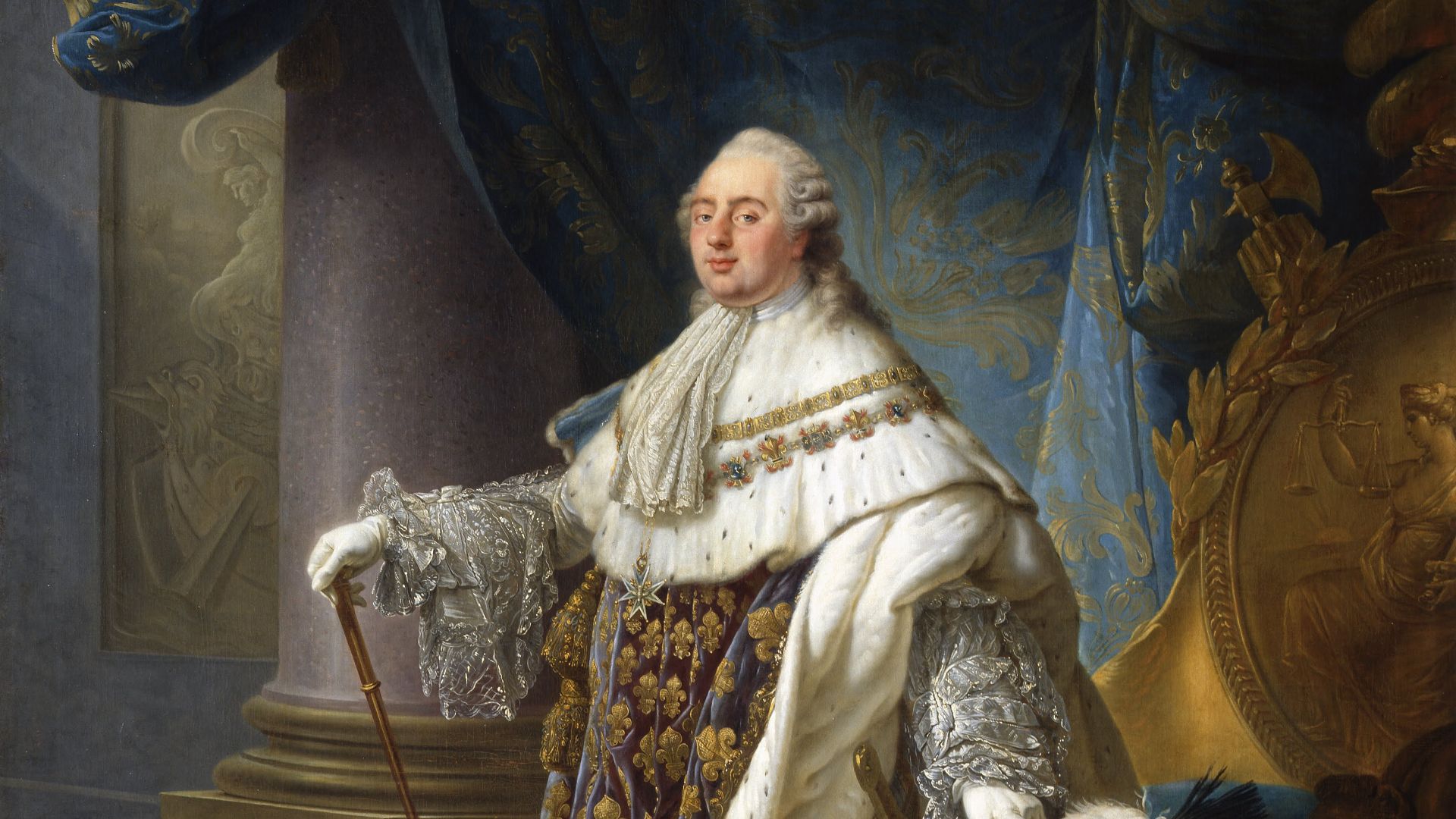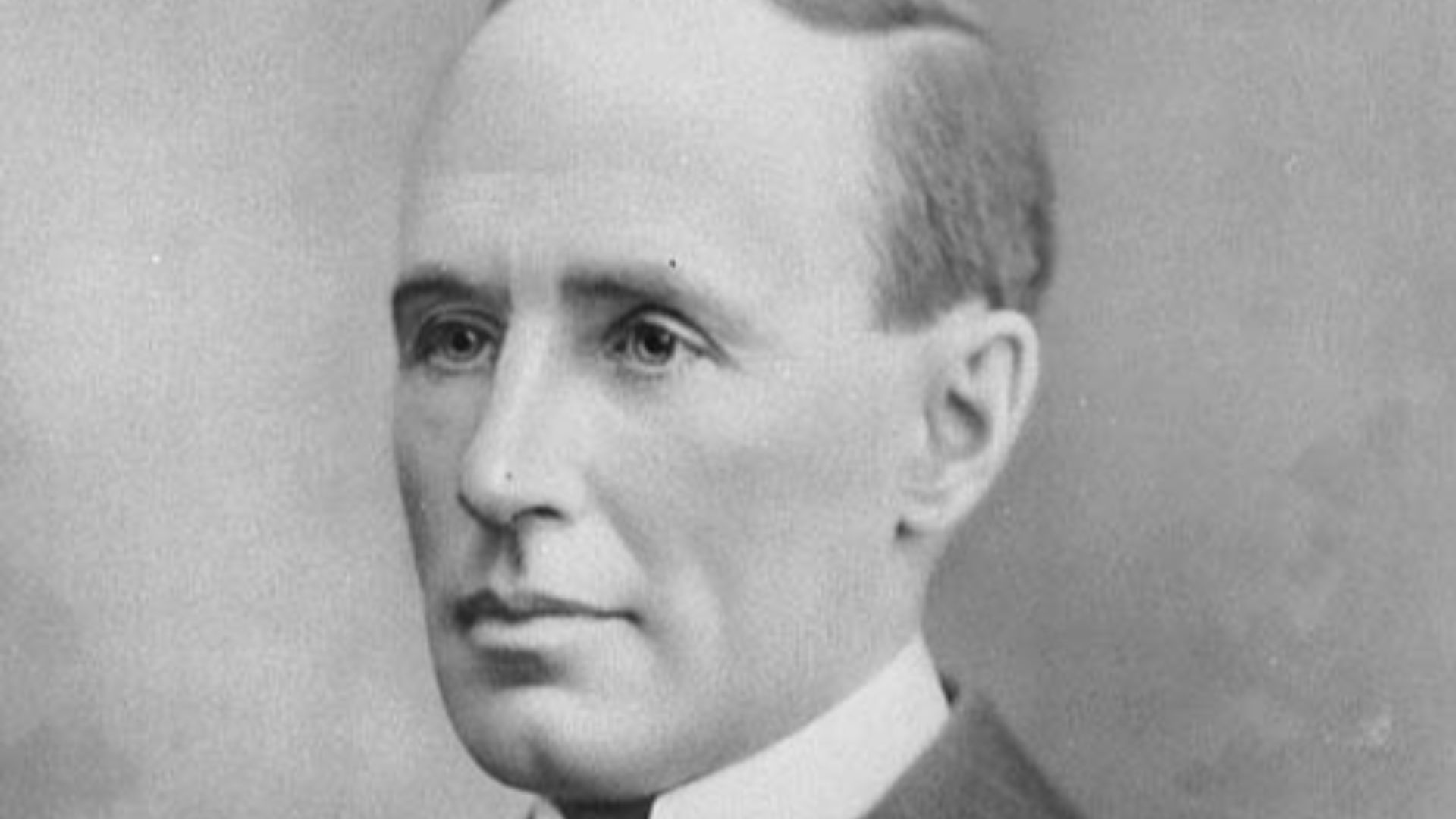10 Of History's Most Impactful Leaders & 10 That Did Virtually Nothing
From Game-Changers To Bench-Warmers
In the vastness of history, countless people have held seats of power. While we've seen some visionaries make a stamp in time, change the state of their country for the better, and influence those to come, there have also been some duds. While leaders like Martin Luther King Jr. worked tirelessly to change the course of history and improve humanity, we also had President Franklin Pierce, whose name, let's be honest, even the biggest American history buff probably doesn't remember. Here are 10 of the most impactful leaders in history and 10 who did virtually nothing.
1. Nelson Mandela
Nelson Mandela's leadership during the fight against apartheid in South Africa was integral to moving the country forward away from oppressive racial segregation to unity and justice. He emerged after almost 30 years in prison as a symbol of resilience and hope.
 Library of the London School of Economics and Political Science on Wikimedia
Library of the London School of Economics and Political Science on Wikimedia
2. Abraham Lincoln
Abraham Lincoln is known for leading the US during one of the country's most tumultuous periods: the Civil War. Committed to equality, he also headed the fight to end slavery, all while keeping a very ideologically divided America unified.
 Alexander Gardner on Wikimedia
Alexander Gardner on Wikimedia
3. Mahatma Gandhi
A trailblazer of nonviolent resistance, Mahatma Gandhi led India on its path to independence from British colonial rule. His approach to achieving his goals through peaceful means inspired future revolutionaries, including Martin Luther King Jr.
4. Alexander the Great
Alexander the Great is widely regarded as the most successful military leader ever, having conquered vast swaths of land and created one of the largest empires of the ancient world. He was known for his strategic brilliance, ability to rally his troops, and charisma, which enabled him to rule over diverse cultures.
5. Julius Caesar
Julius Caesar has long been considered one of the greatest leaders of all time because of his charismatic leadership style and innovation as a ruler. His reforms shaped the way governance was held, and his time in power paved the way for one of history's greatest civilizations: the Roman Empire.
6. Genghis Khan
Genghis Khan founded the Mongol Empire, the world's largest adjoined empire, largely thanks to his leadership and strategic genius. In addition to his military prowess, he established trade networks that enabled communication, unified the vast empire, and ensured prosperity.
7. Winston Churchill
Winston Churchill stepped up to the seemingly impossible task of keeping up morale and unifying the British people during one of the nation's darkest times: World War II. His speeches inspired resilience and perseverance in the face of brutality.
8. Martin Luther King Jr.
Martin Luther King Jr. led the fight for racial equality through nonviolent resistance during the American Civil Rights movement. His "I Have A Dream" speech rallied the nation and went down in history as one of the greatest orations of all time.
 Phil Stanziola, NYWT&S staff photographer on Wikimedia
Phil Stanziola, NYWT&S staff photographer on Wikimedia
9. Cleopatra
Cleopatra is sometimes portrayed as a seductress, but in reality, she was a brilliant politician, polyglot, and tactician. She used her alliances and diplomatic powers to maintain her kingdom's independence during a tumultuous time.
 Fox Film Corporation on Wikimedia
Fox Film Corporation on Wikimedia
10. Queen Elizabeth I
Queen Elizabeth I had to pick up the pieces her father, Henry VII, left behind when she inherited England's throne. A formidable leader, she managed to turn the country around and elevate it into one of Europe's biggest powers.
 Unidentified painter on Wikimedia
Unidentified painter on Wikimedia
Now that we've covered some of the more impactful leaders in history, let's talk about the ones that were, quite frankly, a little forgettable.
1. King Louis XVI
Other than being France's last king before the revolution, King Louis XVI was a very unremarkable leader. His indecisiveness and weakness as a ruler failed to calm the severe unrest that was gripping the nation and may have even led to greater upset and bloodshed.
 Antoine-François Callet on Wikimedia
Antoine-François Callet on Wikimedia
2. John Tyler
John Tyler was president of the US from 1841 to 1845, but unlike the others, he wasn't voted into office. He ascended to the presidency after his predecessor, William Henry Harrison, died just a month into his first term. He wasn't able to achieve much as he was politically isolated from his own party.
3. Didius Julianus
The Roman Empire was full of influential leaders from Augustus to Marcus Aurelius and Julius Caesar, but Didius Julianus wasn't one of them. He bought the empire at auction after the murder of Emperor Pertinax and only ruled for a couple of months before being overthrown and executed.
4. King Louis XVIII
Perhaps the only French king less remarkable than that Louis XVI was his brother, Louis XVIII. He was placed on the throne briefly when the Bourbon monarchy was restored and then again by allied forces after Napoleon's defeat, but he was always overshadowed by The Little Corporal.
5. Mariano Rajoy
Mariano Rajoy was Spain's Prime Minister, known for his quiet and docile demeanor. Unfortunately, he came to power at a time when Spain needed a decisive, strong, and assertive leader as the country was going through a major constitutional crisis in which Catalonia almost seceded from Spain.
 Ministerio de la Presidencia on Wikimedia
Ministerio de la Presidencia on Wikimedia
6. Sultan Ibrahim
Sultan Ibrahim of the Ottoman Empire's rule was characterized by his mental instability and the rising power of the Grand Viziers and the women of the Imperial Harem, who essentially governed in his stead. He had no direct impact on the country despite ruling for eight years.
7. Arthur Meighen
Arthur Meighen has gone down in history as Canada's least remarkable Prime Minister. His first term was plagued by labor unrest in the post-WWI era, which he dealt with ineffectually by trying to squash it, and his second term was cut short by a constitutional crisis.
8. Sir Henry Campbell-Bannerman
The Prime Minister of the UK at the beginning of the 20th century, Sir Henry Campbell-Bannerman, won a landslide victory, but his rule was cut short when he fell ill. Although he laid some mildly important groundwork, he is barely ever remembered, overshadowed by other PMs of the era.
 Internet Archive Book Images on Wikimedia
Internet Archive Book Images on Wikimedia
9. Franklin Pierce
You have to know your presidents to remember the name Franklin Pierce. His time in office was notable for the escalating conflict in the country over slavery, which he was unable to address with any decisive action.
 Mathew Benjamin Brady on Wikimedia
Mathew Benjamin Brady on Wikimedia
10. Neville Chamberlain
Neville Chamberlain was the Prime Minister of Britain right before WWII broke out, so naturally, he was overshadowed by the likes of Winston Churchill. What's more, his lack of decisve action against Hitler's aggression at the beginning of the war made Britain look weak and allowed the Nazis to gain too much ground.
KEEP ON READING

The 20 Most Historic Battles In American History
Battles That Shook American History. Not every battle is remembered,…
By Chase Wexler May 31, 2025
From School Plays To Starting A Cult: 20 Of The…
The Books That Made Us. Many people will tell you…
By Farva Ivkovic Jan 31, 2025
20 Facts About Jane Grey, The Forgotten Queen Of England
A Quick, Messy, and Tragic Reign. Lady Jane Grey never…
By Maria Cruz Jan 31, 2025
20 Historical Finds That Prove Time Travel Exists
Blast From the Past. Whether you believe in time travel…
By Farva Ivkovic Mar 31, 2025
20 Of History's Greatest Forgotten Empires
Rome Wasn't The Only One That Fell. In the annals…
By Emilie Richardson-Dupuis Jul 31, 2025
20 "Facts" Of American History That Are Totally Wrong
American Facts You'll Need to Relearn. Chances are, you've taken…
By Christy Chan Mar 31, 2025












